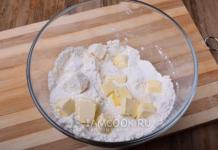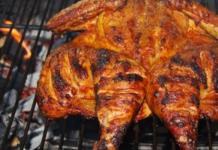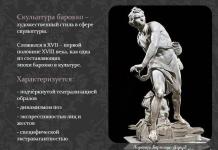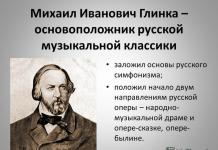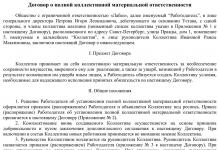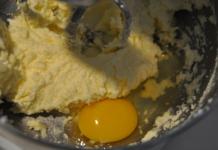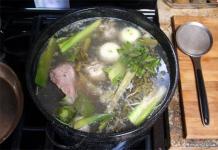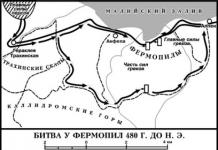As children, many of us believed in fairy tales. And adult life does not often spoil us with pleasant surprises. However, the domestic manufacturer presented the ideal gift for builders and developers. We present to your attention the insulation of the “Isover” brand, which embodies the basic desires of consumers: Isover light is light in weight; Isover light – the price is affordable for everyone; Izover Light, Izover Optimal, etc. – low heat transfer; Izover – versatility and multifunctionality.
The modern material is made of mineral wool and is a reliable and certified thermal insulation for prefabricated buildings.

Isover Light is not afraid of snow, rain, or corrosion
The heat insulator in the form of lightweight insulation Isover Light is produced in Russia and serves you with high-quality insulation based on stone wool. Minslabs are not afraid of temperature changes, high humidity, or biological corrosion. Natural raw materials make it possible to create products for universal use.
Isover light has a low density, and it reduces the overall weight of the building structure, speeds up installation, and facilitates transportation. Low water absorption prevents the slabs from absorbing moisture from the air and therefore there will be no deterioration in heat resistance characteristics. There are a couple more advantages that you can save on. You will learn about them by calling +7 495 988-99-36!

Isover Light does not shrink for 50 years
The fire resistance of Isover Light helps to put out a fire in the shortest possible time. Due to the well-thought-out shape of the slabs, you can install heat-insulating slabs without fasteners or additional fixation. This brand can be combined with other building materials, and chemical neutrality opens the way to single-layer and multi-layer insulation systems.
The low coefficient of mounting compaction protects against strong shrinkage. The elasticity and installation of slabs by surprise is a guarantee of reducing the cost of construction work in frame structures. What are the savings? Due to the elimination of fastening elements used in thousands on large objects.

Isover Light – installation on any buildings
The manufacturer of thermal insulation Isover Light has permission to use the material in residential, public, and administrative institutions. There are also no restrictions for installing Isover Light in hospitals, kindergartens, schools, dachas, cottages, and country houses. Thanks to the characteristics of Isover Light, it is in demand in the field of insulation of non-load-bearing structures, for example, insulation of internal walls and plasterboard partitions.
Using MinPlit Light you can insulate the ceiling and walls of attics, attics, joist floors, interfloor ceilings, and frame structures. An important advantage is that the material can be laid in one or two layers, it all depends on the design of the pitched roof.
Isover light insulation is an effective and widely known building material used in private construction. Ease of installation, modest price and amazing insulating characteristics - this is what distinguishes isover light insulation from similar products. Isover light insulation is indispensable when designing and installing thermal insulation of walls and roofs of houses and premises. It does not dampen or rot, and retains moisture. This material contains bactericidal substances that prevent rotting and the appearance of mold and fungi.
Isover light insulation: application and use
What are the areas of use of such material as isover light insulation? This product is indispensable when creating and insulating roof slopes. The ease of changing size and shape and installation makes it possible to use isover light insulation even in very small corners of the room. Floors are also often insulated with this material.
Advantages and disadvantages - isover light insulation
Let's list the main advantages that isover light insulation has. So, the main quality that makes isover light insulation so popular is its heat retention properties. It makes it possible to forget about cold bridges, completely sealing the room. The fire safety of this material is also excellent: it does not create toxins when burned. This is achieved thanks to specialized high-tech additives with which isover light insulation is impregnated. Isover light insulation is often used for noise insulation of mansions. You are also not afraid of dampness due to the hydrophobicity of the material and its structure. Taking into account the use of modern bactericidal additives, this completely eliminates the risk of mold formation.
Where to buy isover light insulation?
We are engaged in the sale of this material, so you can buy isover light insulation directly on our website. Simply add the item you have chosen to your cart and pay. Got a question? Then just call us at the phone number listed on the website! Our managers will do everything to help you choose the most suitable brand of material, and will also tell you about the features of using such insulation as isover light insulation.

The warmth in the house directly depends on many factors, including the thickness of the insulation. The greater its thickness, the better your home will be protected from cold and freezing, and the less you will pay for heating.
Calculate the cost of 1 m2 and 1 m3 of insulation in a pack and you will see that insulating your home with ISOVER quartz-based mineral wool is profitable. The money saved can be spent on insulating your home with another layer of quartz-based mineral wool, thereby making your home warmer, increasing its energy efficiency class and reducing heating bills.

In Russia, only ISOVER produces both basalt wool from rocks and natural insulation based on quartz for insulation of private houses, dachas, apartments and other buildings. Therefore, we are ready to offer our own material for each design.
To understand the best way to insulate a house, you need to consider several factors:
- Climatic features of the region in which the house is located. - Type of structure that needs to be insulated.
- Your budget and understanding of whether you want the best solution, insulation with an optimal price-quality ratio, or just a basic solution.

ISOVER quartz-based mineral wool is characterized by increased elasticity, so you will not need any fasteners or additional beams. And most importantly, thanks to dimensional stability and elasticity, there are no cold bridges, so heat will not leave the house and you can forget about freezing of the walls once and for all.
Do you want the walls to not freeze and the warmth to always remain in the house? Pay attention to 2 key characteristics of wall insulation:
1. HEAT COEFFICIENTCONDUCTIVITY
2. FORM STABILITY

Find out which ISOVER material to choose to make your home warmer and pay up to 67% less for heating. Using the ISOVER calculator you can calculate your benefits.
How much insulation and what thickness do you need for your home?
- How much does it cost and where is the best place to buy insulation?
- How much money will you save monthly and annually on heating thanks to insulation?
- How much warmer will your home become with ISOVER?
- How to improve the energy efficiency of structures?
“The Tale of the Goldfish”... Who didn’t read it as a child? You will say that this is a fiction, that such miracles do not happen in life. And you would be wrong...
Pay attention to the construction products of the Isover Light brand from Saint-Gobain. They embodied 3 consumer desires.
- Isover Light is a low specific gravity;
- Isover Light – low heat transfer parameter,
- Isover Light – versatility.
The products of the Chelyabinsk plant Isover Light, made from mineral wool, are good insulation for prefabricated buildings.
Description of Isover Light
Thermal insulation in the form of lightweight insulation Isover Light is produced in the Russian Federation and serves to meet the needs of Russian consumers for high-quality insulation based on stone wool.
Isover Light miniplates can withstand temperature changes, air humidity, and biological corrosion perfectly. The naturalness of the components of the raw material mixture in Isover Light allows you to create products for widespread use.
Technical characteristics of Izover Light
- Isover Light is distinguished by its low material density. This has a positive effect on reducing the overall weight of building structures in the building, speed of installation, and ease of transportation.
- Low water absorption keeps Izover Light slabs from absorbing moisture from the air and the associated deterioration of heat-resistant characteristics.
- The fire resistance of Saint-Gobain Isover Light thermal insulation helps to quickly eliminate fire hazards for personnel, residents, equipment, and property.
- The clear shape of the Isover Light edges allows the products to form an insulating carpet in frame walls without fasteners or additional fixation.
- Compatibility with other building materials and chemical neutrality in Izover Light contribute to the organization of single- and multi-layer insulation systems in accordance with the technology chosen for the project.
- The low coefficient of installation compaction Isover Light prevents extensive shrinkage processes in the insulation. The elasticity of Isover Light mineral wool slabs and the installation of products by surprise will lead to a reduction in the cost of construction work in frame structures (due to the elimination of fasteners used on large objects in the amount of several thousand pieces).
Application of Isover Light
The Sanitary and Epidemiological Service has given permission to use lightweight Isover Light slabs in buildings for various purposes (residential, public administrative). There are no restrictions for the use of Isover Light in hospitals, kindergartens, and schools.
In residential construction, Izover Light insulation is often used in private housing construction: dachas, cottages, country houses.
The universal material Isover Light is in demand in the field of insulation of non-load-bearing structures (insulation of internal walls and plasterboard partitions).
With the help of Isover Light mini-plates, attic spaces (ceiling and walls of the attic, attic), floors along joists, interfloor ceilings, and frame structures are insulated.
Depending on the thickness of the insulation in the roof of a pitched roof, one- and two-layer installation of Isover Light basalt wool insulation is allowed.
Moscow: construction continues
You will be able to buy Light slabs from Rudders next fall. We try to keep Moscow buyers up to date with the latest developments in the construction industry.
Don't forget to visit our website for the latest management directives regarding the company's product and pricing policies. Quite often we hold promotions for the sale of goods that are quite profitable for customers.
The prices in the price list are freely available on the website.
Join the group of our customers who are confident in the quality of our products and the reliability of the seller!
- Preparatory work
- Installation of scaffolding
- Preparing window openings
- Installation work
- Installation fastening system
- Installation of mineral wool slabs
- Installation of metal tiles
- Applying the base layer
- Applying a decorative layer
see also
Facade insulation system with a thick plaster layer
Facade insulation system with a thick plaster layer
Plan of work stages for a façade insulation system with a thick plaster layer
- Preparatory work
- Installation of scaffolding
- Dismantling of attachments
- Preparing window openings
- Installation work
- Installation fastening system
- Installation of mineral wool slabs
- Installation of metal tiles
- Applying the base layer
- Applying a leveling plaster layer
- Applying a decorative layer
You can start cutting the expansion joint after applying decorative plaster. Cutting occurs along the corners of the building at a distance of 250 mm, along the surface in squares of 15 * 15 m. It is done with an angle grinder with a diamond disc.

Isover. Which insulation is better: in slabs or in rolls?
In this video you will learn which insulation is easier to work with: in slabs or in rolls. The main characteristic showing the quality of the insulation material is its recoverability. High-quality material has the ability to recover to the stated dimensions after opening the package, which was demonstrated in the video. The thickness of Isover insulation, both in slabs and in rolls, after opening the package was restored to 50 mm. To install insulation in slabs, it is necessary to measure the distance between the frame posts. The slabs are ideal for wall insulation with a standard distance between frame posts of 600 mm. When installing slabs, joints are formed that must be covered with a second layer of slabs. It is better to use insulation in rolls when there is a non-standard step between the frame posts. First, the distance between the racks is measured, then the unpacked roll is cut to the required size and rolled out along the entire length of the wall. When insulating with rolls, no joints are formed. All Isover materials have increased elasticity and hold securely in the structure.

Isover: How safe are thermal insulation materials?
In this video you will learn how safe it is to use mineral wool for your health and the health of your family. The safety of mineral wool is confirmed by eco-labels, as well as studies in major scientific centers, such as, for example, the Institute of Hygiene. Sysina. In addition to these guarantees, Isover provides an environmental declaration for its products. Thermal insulation based on mineral wool is used in all buildings and structures, including kindergartens, schools, and hospitals. Another sign of the absolute safety of mineral wool is its non-flammability and fire safety, which is confirmed by certificates of compliance with fire safety requirements.

Isover: Which thermal insulation is better: stone wool or fiberglass?
Isover is the only company in Russia that produces mineral wool based on fiberglass and stone wool. The basis of stone wool insulation is molten rock, and the basis of fiberglass insulation is sand and glass cullet, melted at 1000 °C. Materials based on stone fiber are denser than materials based on fiberglass, which is primarily due to the length of the fibers when producing the base for insulation. But density is not a determining parameter when choosing insulation. The main characteristics are thermal conductivity and mechanical characteristics. If we compare materials by area of application, insulation based on both types of mineral wool is divided into three types: Lightweight grades are used in frame structures, for insulating walls and pitched roofs. Such insulation does not take on any load.

Highly specialized materials are used for soundproofing partitions and for insulating saunas and baths. Materials based on fiberglass are lighter than materials based on stone wool. Due to the length of the fibers, they have greater elasticity, which allows them to fill all the unevenness and voids of the insulated surface, eliminates the formation of “cold bridges” and ensures reliable fixation in the structure. Both types of materials are non-flammable materials and do not propagate or support combustion. Now that you know the differences between the two types of mineral wool, you will make the correct and objective choice of thermal insulation material for your home.
Is the density of mineral wool insulation a decisive characteristic when choosing insulation? You will find the answer to this question in this video. The density of the thermal insulation material affects the thermal conductivity coefficient, strength characteristics and other parameters. But this relationship is not linear. The dependence of the thermal conductivity coefficient on the density of the material is the same for fiberglass and stone wool. For fiberglass-based insulation, the range of optimal density, providing a minimum thermal conductivity coefficient, is 25-35 kg/cub.m. For insulation based on stone wool - 45-55 kg/cub.m. Thus, stone wool is able to provide the same thermal insulation characteristics, but at higher densities. Remember that when purchasing thermal insulation materials, we acquire the thermal insulation qualities of the product, and not its density. Even a lightweight fiberglass insulation board with a density of 60 kg/m3 can withstand heavy loads without deformation. Therefore, when choosing insulation, first of all pay attention to the thermal conductivity coefficient, durability, non-flammability and environmental friendliness.



